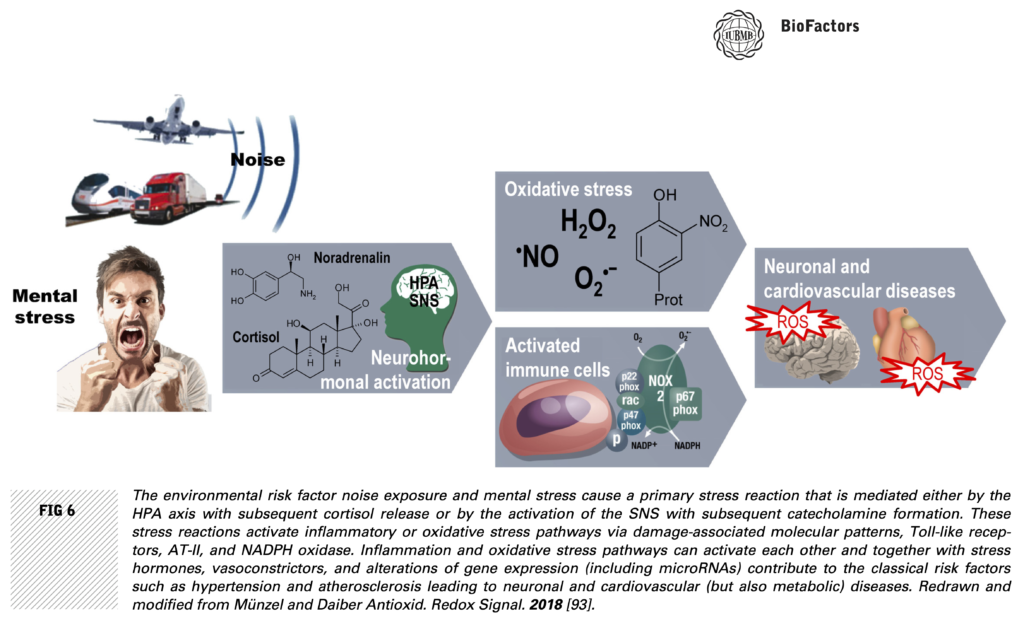60 Reasons to Protest: Reason #20 – Aircraft Noise and Your Mental Health
Aircraft noise can no longer be considered simply as an inconvenience to people’s lives. Major studies have concluded that aircraft noise is negatively affecting people’s health and quality of life. Exposure to aircraft noise can lead to short-term responses such as sleep disturbance, annoyance, and impairment of learning in children, and long-term exposure is associated with increased risk of high blood pressure, heart disease, heart attack, stroke, dementia, and may contribute to long-term mental health issues.
Aircraft Noise and Public Health: the evidence is loud and clear, AEF 2016
Think back, is it possible, since being exposed to excessive flight path noise pollution, that you and your family are experiencing more interpersonal stresses, having more tiffs and arguments than before? At work, school, college or university is the same kind of thing happening?
The cause is more than likely excessive flight path noise caused by prolonged exposure. You may have noticed your children may not be doing as well at school as before, their progress in learning new skills has slowed down somewhat, their test results are a bit lower than before. Again, the likely culprit is prolonged noise exposure, at home and school, to excessive aircraft noise.
It is now nearly three years since the great majority of Brisbane suburbs began to be hit with excessive aircraft noise pollution from Brisbane Airport’s new flight path design. The well known and potential health impacts of this noise was glossed over in the Environmental Impact Statement (EIS) produced by Brisbane Airport Corporation (BAC). BAC seriously minimised the number of suburbs and schools that would be exposed, they deliberately ignored the wealth of international scientific data showing aircraft noise pollution is a public health problem. Since then state and federal governments have also ignored what is well known about this problem, done all they can to avoid to admitting it exists and addressing it.
In 2022, according to Airservices Australia, the government-owned service provider to the aviation industry, families and communities in 226 suburbs across greater Brisbane have complained about being overflown by aircraft using Brisbane Airport. Based on the 2021 census about 1.5 million people live in these suburbs. A preliminary estimate suggests a quarter of a million people (~16%) are subject to extreme noise levels – those closest to the airport and main flight paths suffering the most – and another million people are subject to excessive noise (~68%) from Brisbane Airport.
Impact on School Children
One of BFPCA’s primary concerns has been the effects of aircraft noise on school students – there are some 50 schools under low level flight paths (< 3,000’) that stretch right across Brisbane. Extensive research over the last two decades shows excessive, prolonged aircraft noise slows children’s cognitive development and reading skills by some 10%, and may have negative life-long effects. This is a critical issue that should concern every parent in Brisbane. Second, slowing children’s learning has financial impacts for families, if a child needs to repeat a course or year of study. With real annual costs in state schools of over $5,000 (many times this in private or independent schools) and over twelve years of schooling this 10% slowing of school performance can amount to an additional financial burden of some $6,000.
BFPCA Community Surveys
BFPCA conducted two community surveys in 2021 and 2022, over 4,000 respondents in total were asked how aircraft noise was affecting them personally and their family at home, at work and at school. Some 75% reported they were suffering mental health problems – from mild to serious, from stress to headaches to suicidal thoughts – directly associated with the impacts of prolonged exposure to aircraft noise pollution in their lives. These surveys were conducted when there were a lot fewer than 1,000 overflights per week.
BFPCA’s preliminary estimates are that at least 500,000 people in Brisbane – nearly a quarter of the city – are affected by excessive aircraft noise and other forms of aviation-related pollution (e.g. toxic ultra-fine particulates and dangerous gases). Long-term studies in Europe and the US show aviation-related pollution is a significant factor in increased heart rate, blood pressure, and cardiovascular risks, diabetes, systemic inflammation and oxidative stress – a long list. Noise and air pollution are now recognised as the most serious environmental risk factors, all known as major personal and public health issues.
Our state, federal and local governments have a ‘duty of care’ for citizens, so far they are refusing to accept any responsibility. BFPCA attempted to alert Queensland Health to the seriousness of the problem, but were ignored; Commonwealth Health said it was a state responsibility; Brisbane City Council avoided speaking up. BAC did not want to know, as it’s focused on profit making and increasing the number of flights. We now (May 2023) have reached nearly 4,000 overflights per week – the public health impacts are now much more serious than in 2022! We need to protest lack of care and remedial action.
Brisbane residents can expect to see the statistics regarding this list of public health problems climb, as long as local, state and federal authorities and, of course, BAC, continue to refuse to take effective action minimising aircraft noise over Brisbane.

It may surprise you to learn that, in contrast to Europe or the US, little or no research has recently been done in Australia into the effects of aviation on human health and wellbeing. We almost totally depend on international research for our knowledge and insights about aviation. A useful source freely available for download is: “Aircraft Noise and Public Health – the evidence is loud and clear” by the Aviation Environment Federation, UK, 2016.
Think back to what it was like before excessive flight path noise pollution haunted you and your family. Brisbane used to be a great place to live. Now, for too many families, living in Brisbane is a matter of finding a way to survive an endless battering from aircraft noise.
Register for the BFPCA protest:
Discuss this in the BFPCA Facebook group:


